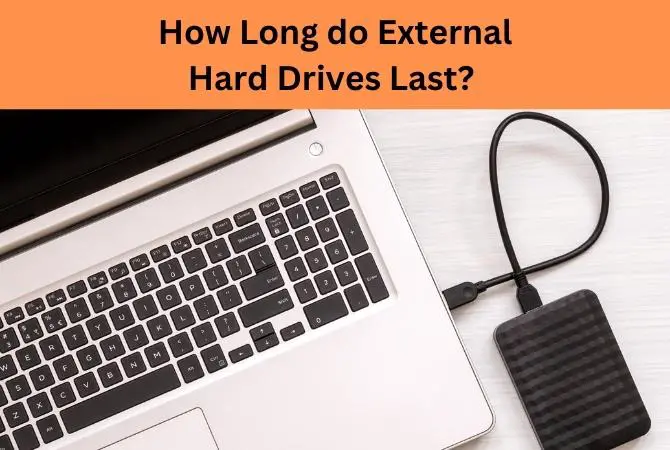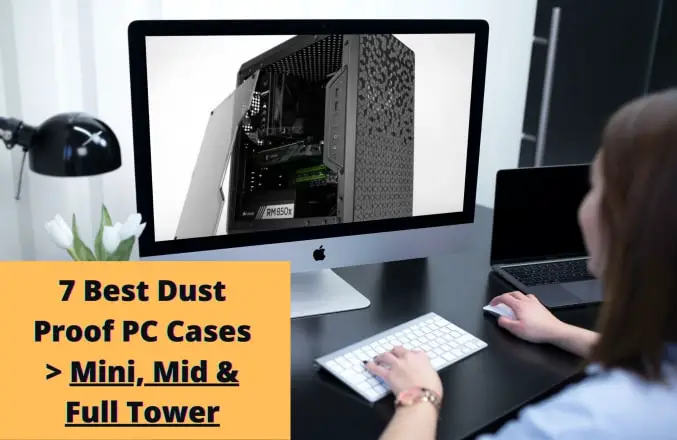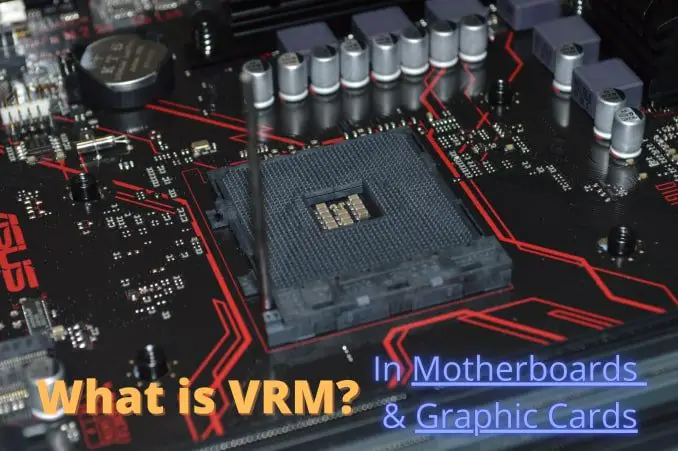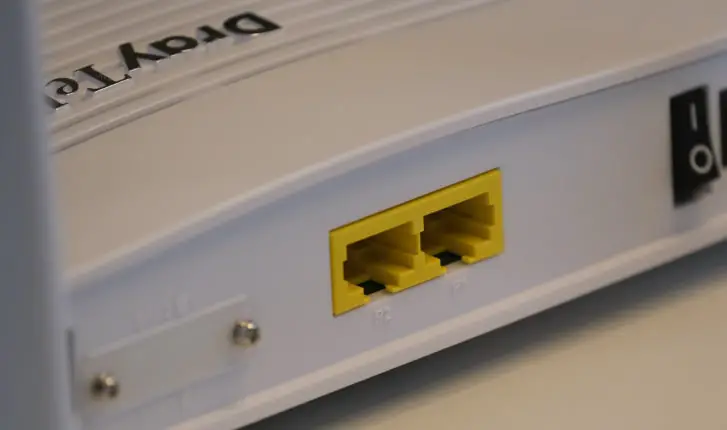External hard drives are a great option for portable storage capacity but have you ever thought about how long do external hard drives last?
Do you want to ensure that all your important files, documents, and photos are backed up safely and reliably over the long term? If so, you’ve come to the right place. I will explain the external HDD lifespan and how to effectively take care of it and maximize its usefulness over time.
Read on for some useful tips for understanding the expected lifetime of an external hard drive!
How long do external hard drives last?

Although external HDDs from different manufacturers from small to large capacity in size aren’t guaranteed to last forever. Generally speaking, external hard drives have a 4-6 years lifespan.
The lifespan of external HDDs is calculated in terms of time usage, while external SSDs calculated based on the amount of data written. Assuming an external HDD continues to operate 8 hours a day, 30,000 hours = about 10 to 12 years. However, this is just a desk calculation and has a short life.
The lifespan differs for each user depending on the hours of data written daily, the frequency of use and the environment, so it is not easy to say unconditionally how long it can be used. Though, if you use it for only a few hours every day, the life will be longer, and if you use it in a hot and humid environment, the life will be shorter. HDDs, in particular, are vulnerable to heat, moisture, dust, shocks, etc., as they operate magnetically.
General Use Case
For general purposes, such as data storage, five years is a good rule of thumb for an external hard drive life expectancy. However, after five years of usage, your HDD will have a higher chance of crashing and failing without warning – so it’s wise to take regular backups or have a spare on hand.
If you’re utilizing an external HDD as a data server or NAS, and the device is in constant operation, the life will be even shorter. In such cases, more attention must be paid to the risk of failure. From the beginning, take proper measures to prevent data loss, such as taking regular backups and using RAID.
Compared to HDDs, SSDs tend to be more expensive, even with the same capacity, but because they have a longer lifespan.
Hard disk Life Expectancy Internal vs External
The same hardware is installed, whether it is an external or internal hard drive. This includes a magnetic platter that stores data that can be read and written by a head attached to the tip of a part called an actuator powered by a motor.
Specifically, in the case of an external type HDD that is carried around, the deterioration progresses more than internal HDD due to shocks and outside air, and failures occur in the hard disk. Therefore, one should take extra caution when handling them as this could lead to hard disk failure.
What if the external hard disk case breaks?
The external HDD is sealed in a case with an airtight structure and designed to protect the data stored inside while protecting against shocks.
However, if it falls or breaks due to some accident, there is a possibility that dust etc., may enter inside and cause malfunction. Therefore, immediately disconnect the USB cable from the computer, store it safely, and take it to a repair shop as soon as possible.
At the repair shop, they will check for any damage on the PCB board and parts inside, replace them if necessary, and replace broken cases. After repairing, you can use it again safely after confirming that data read/write been restored properly.
How to make your external hard drive last longer?
If you treat your external hard drive with care, you can use it for a longer period of time than usual. Here are some tips on properly handling your external hard drive and extending its useful life. It’s not a difficult task, so if you take care of it daily, you can use it for a long time.
Keep out of getting too hot.
Not only personal computers but all precision equipment is sensitive to heat. Since HDDs are not manufactured for temperatures that rise suddenly, such as in the summer time when exposed to electromagnetic waves or sunlight, they will quickly deteriorate if your computer gets too hot.
It would be nice if the HDD had a fan, but if not, create an environment where the temperature does not rise easily. As with temperature, high humidity will damage the machine, so keep it well-ventilated and maintain a good temp for HDD.
Clean the dust around the hard disk frequently.
Since hard disks are vulnerable to heat, and even if there are ventilation holes in the case, the adhesion of dust will cause the HDD to get exhausted. Dust particles that get into connection parts or terminals may also lead to malfunctioning.
To prevent this from happening, keeping your environment clean near HDDs, such as shelves where they’re placed, is essential. The same goes to RAM life, GPU, Fans and other units inside the PC case.
Avoid unstable locations
Avoid locations where the installation location is unstable (where is a possibility of dropping or impact). Many experienced falls and impacts, such as “tripped on the USB cable and fell”, “fell while standing vertically”, and “dropped it while my child was touching it”. It is good to always place in a stable location. If the external hard drive falls, it may be destroyed in one go. And while operating it, do not drag or shake it intentionally.
Moreover, shock-resistant portable hard disks are vulnerable to shocks, too, even if they are covered with rubber or silicone on the exterior.
Do not perform defragmentation frequently.
A defragmentation is a tool meant to organize the written data on your hard drive and remove unnecessary files, but it is not always necessary to use it. Although it can be beneficial, it often puts an excessive load on the device’s memory while worsening its condition over time.
By default, Windows 10 has a default setting that automatically performs this task in the background once every week; thus, ensuring your computer remains clean and primed for use – even if you don’t manually initiate it yourself!
Take a Backup Before External HDD failure.
It is common to save the personal computer’s data to an external HDD as a backup, but if the data on the external HDD is nearing its end of life, it will be necessary to further backup and save this. In other words, you must migrate the old external HDD data into a new external HDD.
What are the signs of HDD failure?
When external hard drives are coming to an end, it usually sends out some warning signs. By recognizing these alerts in advance, you can back up the important data stored inside before it’s too late. Take heed when experiencing any of the following symptoms – they may indicate that your HDD has reached its end date and needs replacing soon!
If you are using an older hard drive, it is important to monitor for these signs of wear and tear regularly. Slow speeds and loud noises raise your alarm concern – if so, promptly back up the data stored in the HDD before replacing it as soon as possible.
- Related: SSD vs HDD: Which Is More Reliable, Durable & Long Lasting?
- Also Read: Can A Power Outage Damage a PC? or Power Surge or Both?
Final Words
Based on the fact that an external HDD, no matter how high performance or high durability it is, will come to the end of its life someday, I have explained what to do on that basis. I hope you understand that no one knows when the external HDD you currently use will become unusable and that you will understand the countermeasures.
Important files cannot be recovered after being lost. You should do what you can now before your HDD screams.




